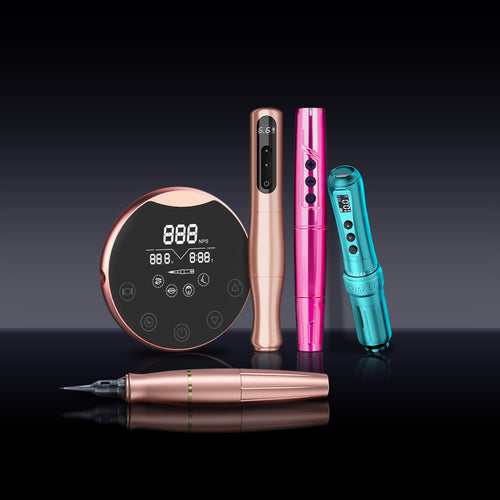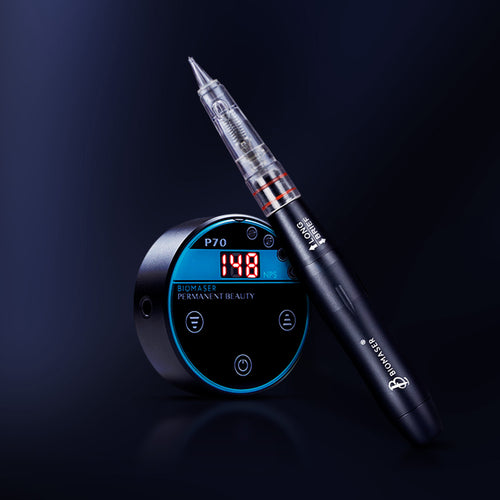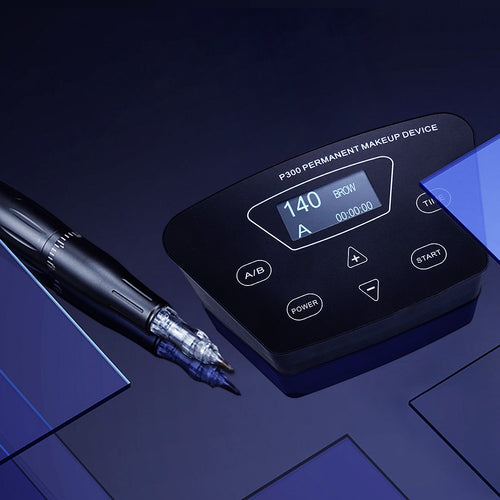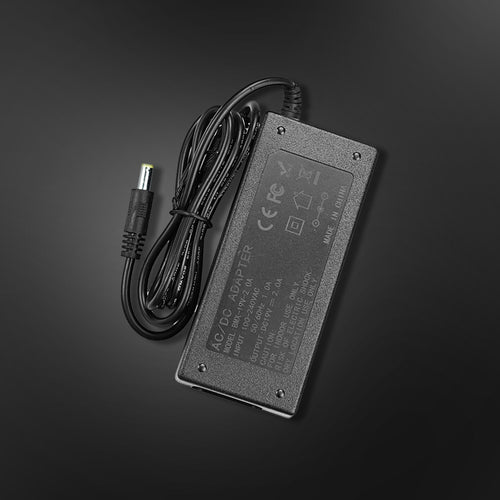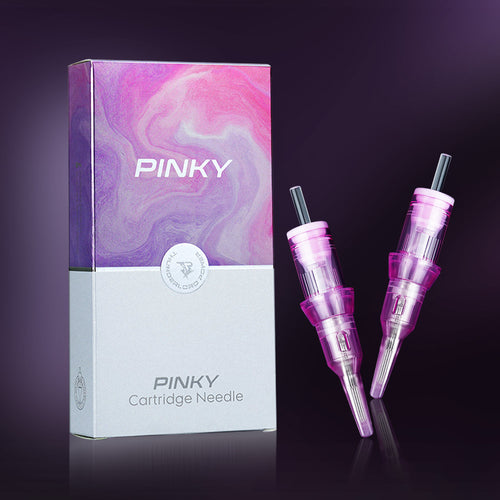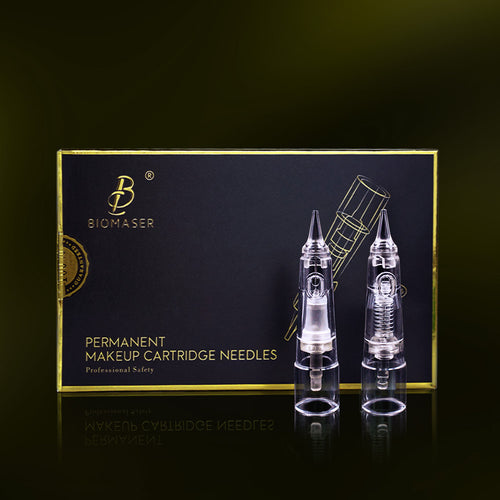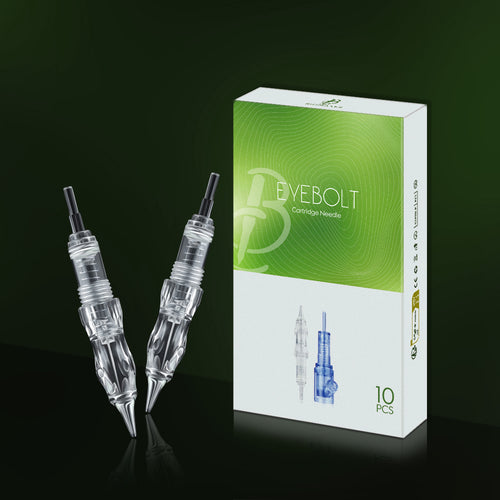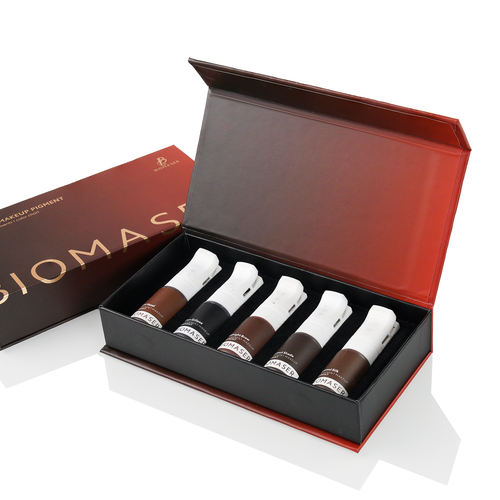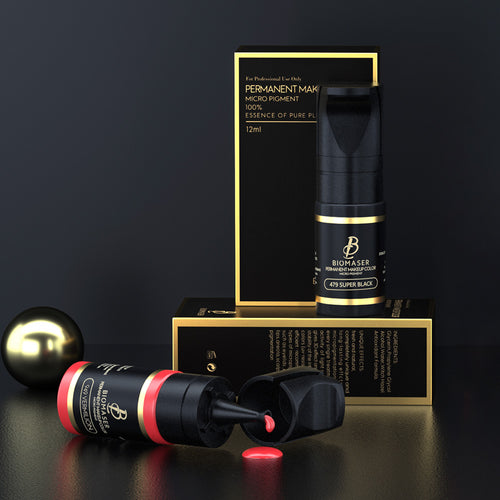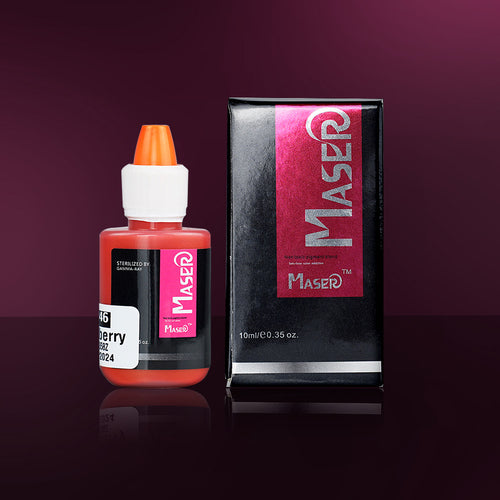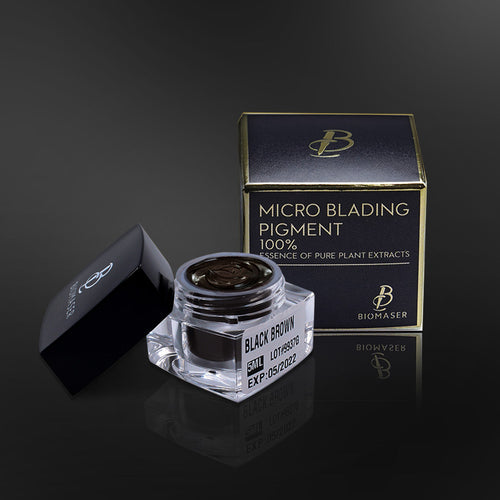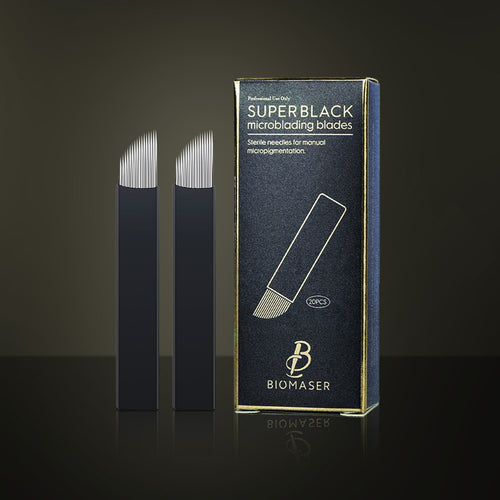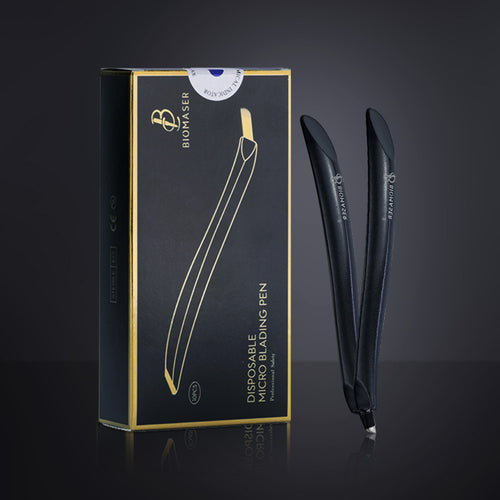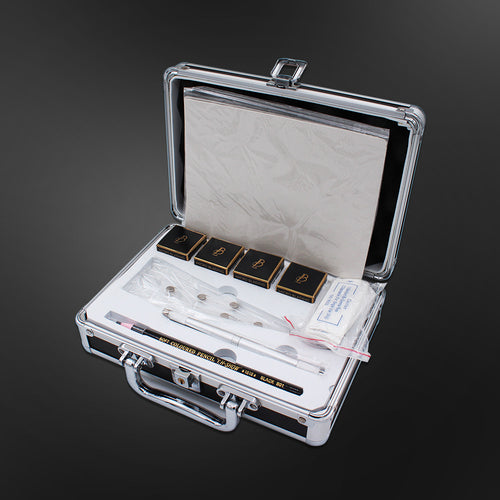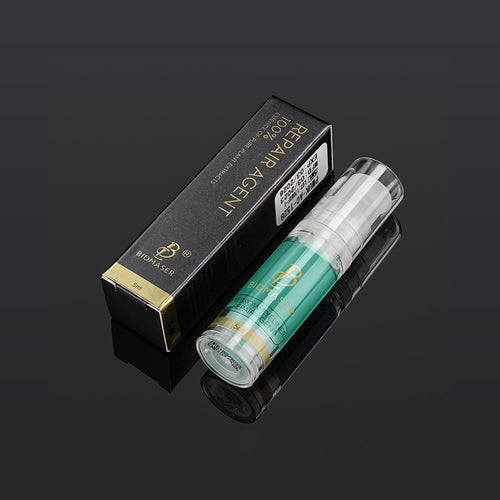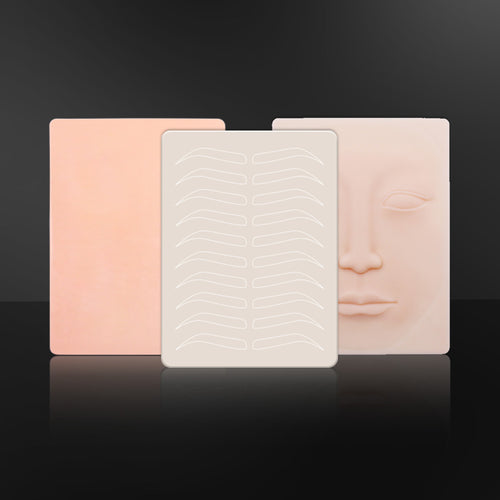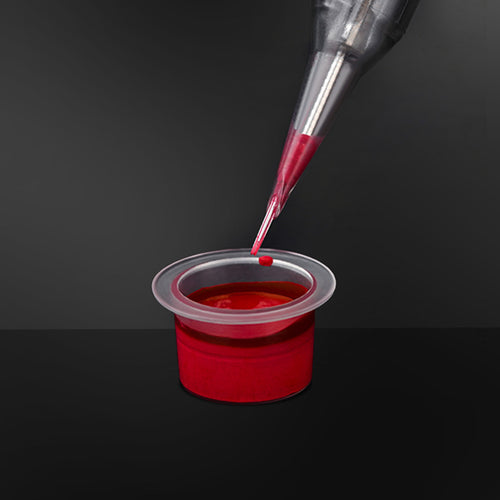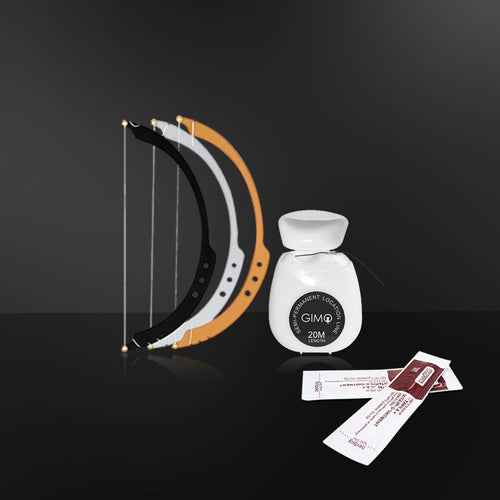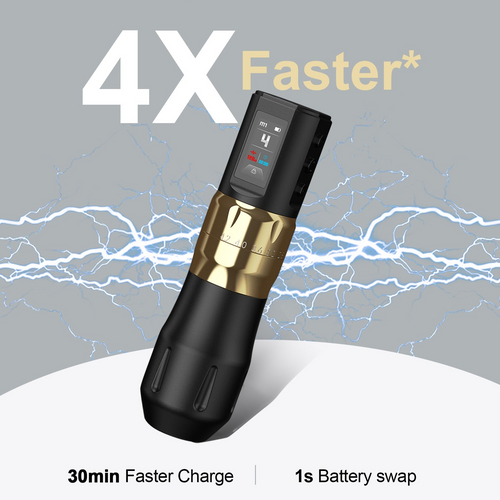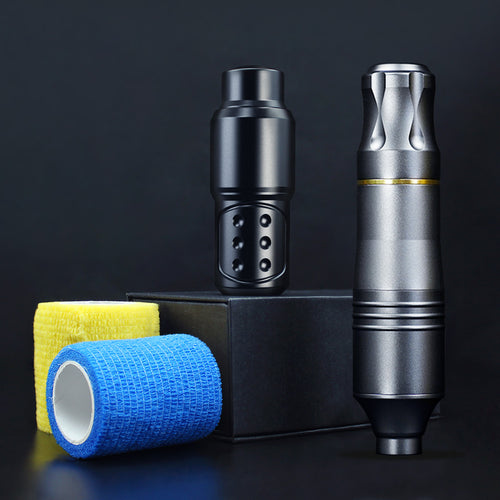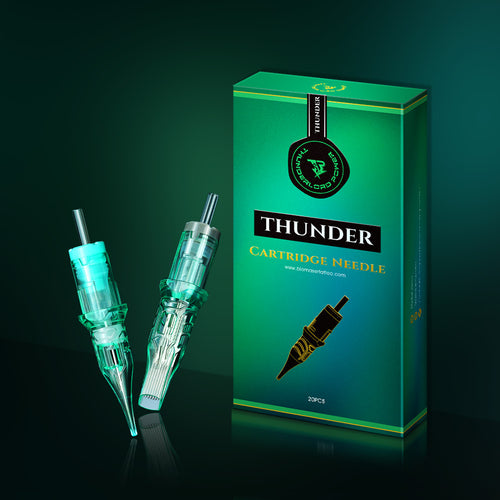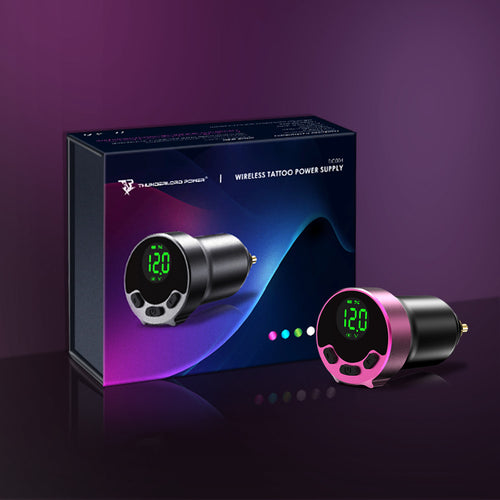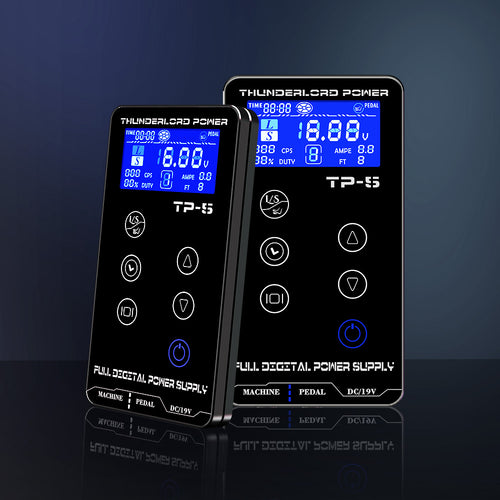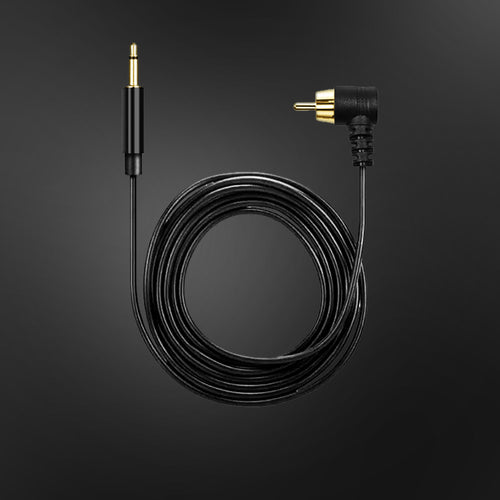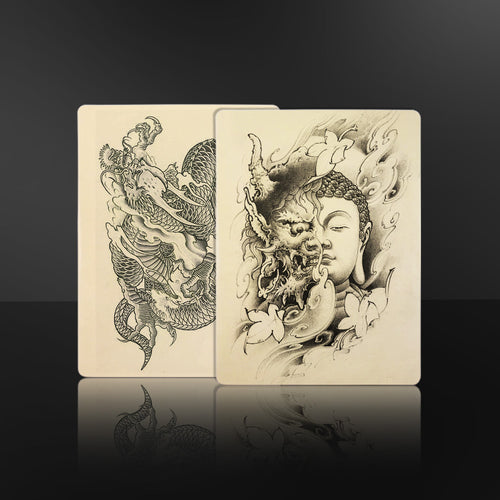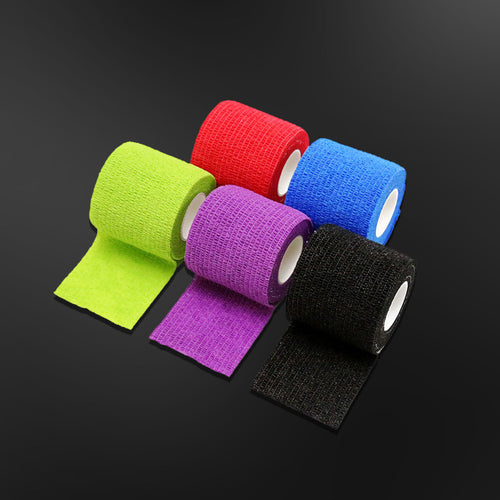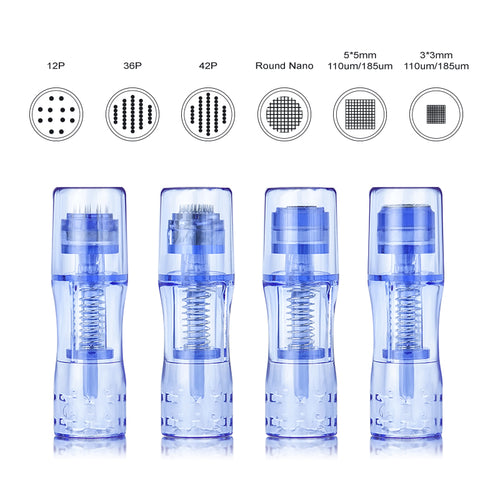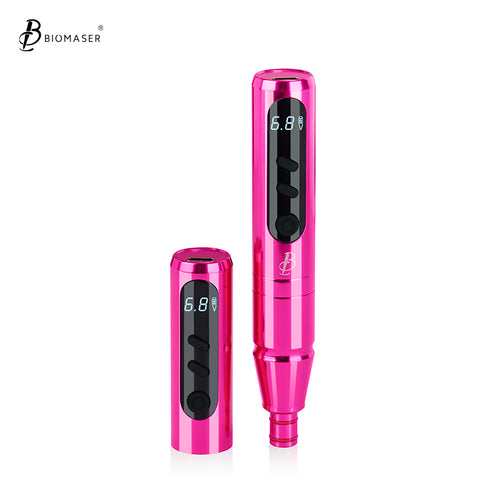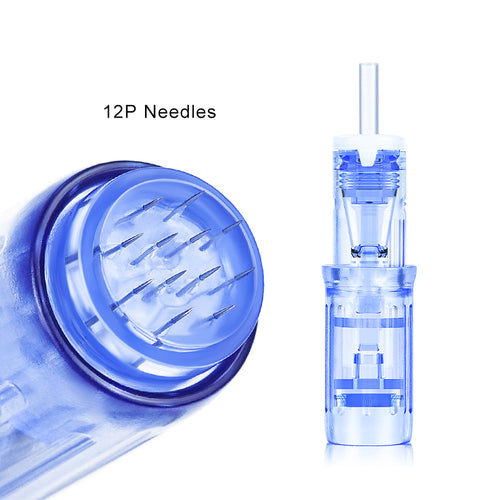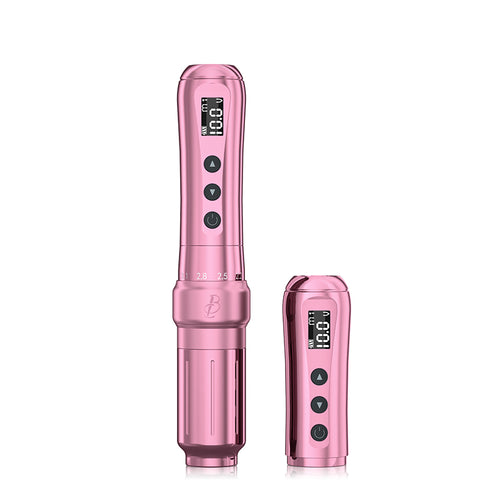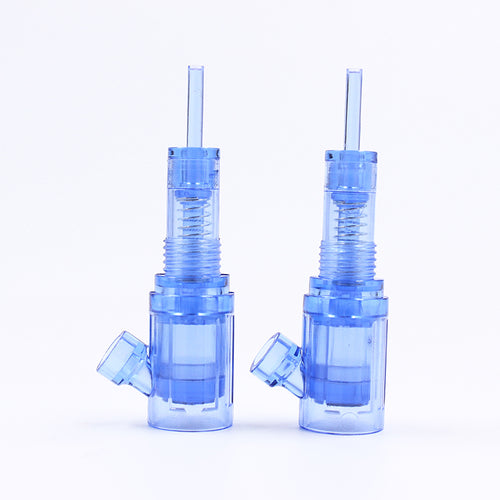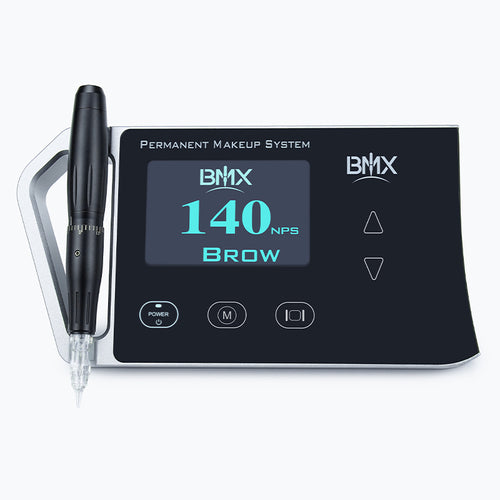Which is Better, Coil or Rotary Tattoo Machines?
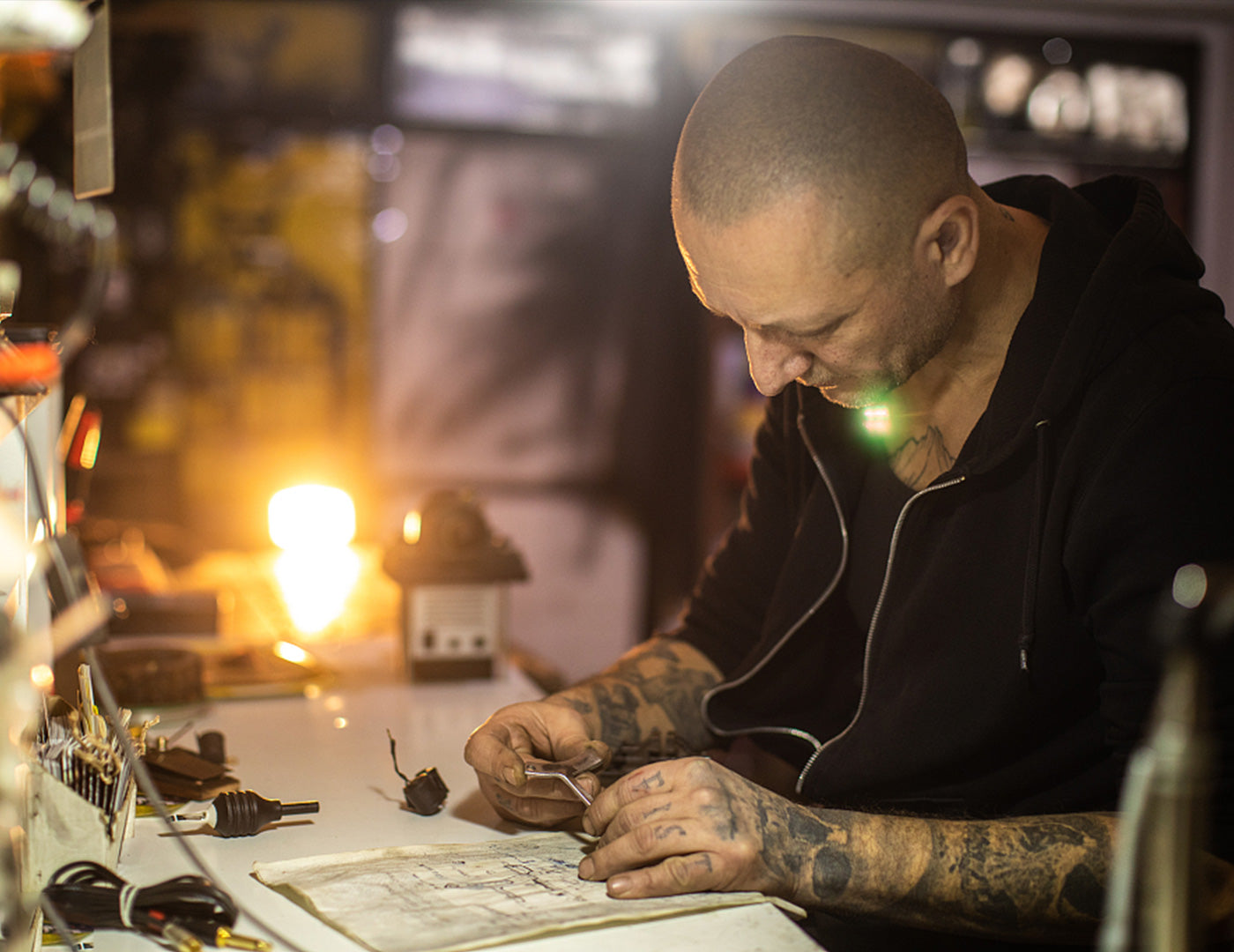
| Aspect | Coil Machines | Rotary Machines |
| Mechanism | Electromagnetic circuit | Electric motor and cam wheel |
| Operation | Coils create magnetic field, pulling armature bar and needle | Motor rotates cam wheel, moving needle in smooth, cyclical motion |
| Needle Movement | Rapid, often several thousand times per minute | Steady, consistent insertion into skin |
| Line Work | Exceptional precision | Clean lines, smoother |
| Shading | Adjustable for soft or saturated | Gentler, reduces skin trauma |
| Versatility | Customizable, needs adjustments | Simplistic, consistent |
| Beginner-Friendly | Steep learning curve | Straightforward, easier |
| Durability | Robust, needs maintenance | Reliable, harder to repair |
| Cost | Affordable to expensive | Higher initial cost, better value |
| Design | Traditional, complex | Compact, lightweight, ergonomic |
The world of tattooing is rich with artistry and precision, where the choice of tools can significantly impact the final artwork. Among these tools, the tattoo machine stands out as a key player. This blog post will compare two of the most popular types: coil and rotary machines. Knowing their differences is crucial for any tattoo artist aiming for quality and comfort in their work.

Basics about Coil Tattoo Machines
At its core, a coil tattoo machine operates through an electromagnetic circuit that moves the needle. When you plug in the machine and press the foot switch, electricity energizes the coils, creating a magnetic field. This field pulls down an armature bar attached to the needle, driving it into the skin to deposit ink. Once the bar hits the bottom, the circuit breaks, demagnetizing the coils. A spring attached to the bar then snaps it back up, reconnecting the circuit, and the process repeats – often several thousand times per minute.
Pros of Using Coil Tattoo Machines
- Precision and Control: The way a coil tattoo machine starts and stops lets artists have incredible control over their work. This means they can get super precise with their lines and shading, which is really important for detailed designs and tattoos that look realistic.
- Fully Customizable: One of the best things about coil tattoo machines is how you can tweak them to fit your style. Whether you need to swap out coils, springs, or even the whole frame, you can adjust everything to suit different tattooing techniques.
- A Nod to Tradition: Coil tattoo machines have been around for ages, growing and changing right along with the art of tattooing. For those who really value tradition, getting skilled with a coil machine is like honoring the craft's long history. It’s a way to stay connected to the countless tattoo artists who've come before.
Cons of Using Coil Tattoo Machines
- Loud and Buzzing: Those coil tattoo machines can really make some noise, buzzing away as they work. Plus, all that shaking does more than just make noise—it can make your hand feel like it's buzzing too, leading to quicker fatigue and discomfort during lengthy sessions.
- Hefty and Needs Care: Typically made from heavy materials like steel or brass, coil machines can be burdensome after extended use. And with all the bits and pieces moving around inside, something's bound to need fixing now and then, so get ready to roll up your sleeves for some regular maintenance.
- Tricky to Master: If you're just starting out, a coil tattoo machine can be pretty daunting. Figuring out how fast it should go, how deep it should puncture the skin, and how hard to press down takes a lot of practice and patience. You've got to learn the ins and outs to really get it right.

Overview of Rotary Tattoo Machines
Unlike the electromagnetic setup of a coil machine, a rotary tattoo machine uses an electric motor as its driving force. This motor rotates a cam wheel which in turn moves the needle up and down in a smooth, cyclical motion. This mechanism allows for a steady insertion of the needle into the skin, making it easier to create even lines and consistent shading. The simplicity of this design means that rotary machines can be compact and lightweight, often constructed from durable materials that lend themselves well to the ergonomic demands of contemporary tattooing.
Pros of Using Rotary Tattoo Machines
- Quiet Operation: The gentle whirring of a rotary machine is a stark contrast to the buzz of coils. This quieter operation makes for a more relaxed atmosphere, potentially easing the apprehension of clients, especially newbies or folks who might be nervous about getting inked.
- Easy on the Arms: Rotary machines are often much lighter than coil machines, which can reduce wrist strain and hand fatigue. This is particularly beneficial during long tattoo sessions where maintaining a steady hand is crucial.
- Keep It Simple with Care: Rotary machines like to keep things low-key when it comes to upkeep. With fewer parts moving around, you don't have to fuss with them much. No constant tweaking or spring-changing is needed here, so you can focus more on art and less on tool maintenance.
Cons of Using Rotary Tattoo Machines
- Tactile Feedback: With rotary tattoo machines, you might not get that same physical feedback you do with the old-school coil types. Rotaries are smoother and more direct – great for some things but can take getting used to if you rely on that tactile sense for super fine details.
- Perceived Versatility: Some purists argue that the uniform movement of rotary machines doesn't lend itself as well to certain styles that require variable needle depth and pressure, such as traditional American or Japanese tattoos. However, advances in technology are narrowing this gap.
- Cost: Generally, the initial investment in a high-quality rotary machine can be higher than a coil machine. But don't let that scare you off – they're kind of like having a car that doesn't need oil changes as often. They run longer without needing a tune-up, which could save you money and hassle down the road.
Factors to Consider When Choosing Between Coil and Rotary
Type of Tattoo Work
If your portfolio consists of work that requires fine lines and intricate details—think portraits, geometric patterns, or ornate designs—a coil machine might be your ally. Its ability to etch sharp, clean lines allows for the meticulous detail that such tattoos demand. For artists who frequently fill large areas with solid colors or gradients, rotary machines can be game-changers. They are adept at packing in color smoothly, which can be less taxing on both the artist's hand and the client's skin over longer sessions.
Personal Style and Technique Preference
- Technique Mastery: Your level of comfort with either machine depends significantly on your mastery of various techniques. Some artists may achieve excellent shading with a coil, while others prefer the softer gradients achievable with a rotary.
- Work Pace: Coil machines might suit those who enjoy a slow, deliberate pace that allows for hyper-focus on each line. Conversely, rotary machines facilitate a faster workflow, accommodating artists who prefer a brisk pace.
Frequency of Use and Typical Session Length
Long sessions can lead to hand fatigue. Rotary machines are generally lighter and easier to handle, potentially making them better suited for extensive work periods. A quieter rotary machine reduces strain and noise, which could make continuous use more comfortable for both you and your clients.
Budget and Investment in Additional Equipment
Rotary machines can be pricier upfront, but considering their lower maintenance costs might balance out the initial investment. Coil machines might require additional purchases over time, like springs, contact screws, and armature bars, which all add up. Factor in these ongoing expenses when considering the total cost of ownership.
Discover Your Best Tattooing Partner!
The debate between coil and rotary tattoo machines doesn't have a one-size-fits-all answer. Each artist’s technique, style, and personal preference significantly determine the best fit. Only by understanding the nuances of each type can artists make informed decisions that enhance their artistry and meet the needs of their clients And if you're still on the fence, don't mind to consider consulting with experienced tattoo artists to see the machines in action before making your purchase.
